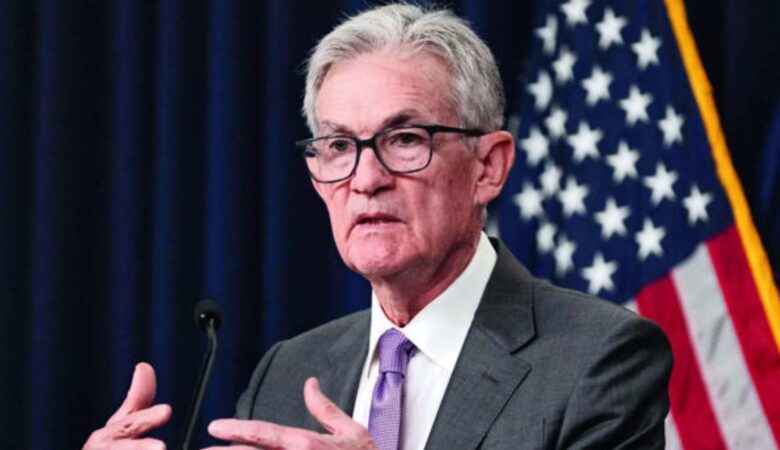Berkshire Hathaway Posts Record Cash Reserve of $325.2 Billion in Q3 2024
Berkshire Hathaway Inc., Warren Buffett’s conglomerate, has reported a record cash reserve of $325.2 billion in the Q3-2024. A substantial trimming of the company’s investment in tech giant Apple by significant reductions in major equity holdings, reflects Buffett’s cautious approach, adding to this historic cash pile. As Berkshire Hathaway refrained from large acquisitions, the company continued to deploy its capital selectively, highlighting a strategic shift in Buffett’s investment playbook.
Strategic Stake Reduction in Apple
Reducing its stake in Apple by around 25% is one of the most significant moves Berkshire Hathaway made in Q3-2024. This is the largest stake cut in Apple since Berkshire first began investing in the company in 2016, with an initial outlay of $31.1 billion for more than 908 million shares. As of the end of Q3, the company’s Apple holdings were valued at $69.9 billion, down from $84.2 billion in Q2. Despite selling over 600 million Apple shares this year, Apple remains Berkshire’s single largest stock holding, underscoring its importance within Berkshire’s portfolio even amid tactical reductions.
Likening its strength and reliability to other Berkshire holdings such as American Express and Coca-Cola, Buffett has consistently praised Apple’s business model. He has called Apple an “even better” business than many of Berkshire’s fully owned companies, emphasizing its enduring value despite partial divestments. According to Buffett, the reduction was partly driven by tax considerations, as he acknowledged that the federal tax on gains would likely increase in the near future. In his own words, Buffett sees Apple as a core long-term investment, indicating that Berkshire’s reduced stake should not be misinterpreted as a change in sentiment regarding the tech giant’s value.
Net Share Sales and Strategic Cash Deployment
In Q3-2024, Berkshire Hathaway reported net share sales of $34.6 billion. Alongside Apple, the company also reduced its stake in Bank of America, selling billions of dollars’ worth of shares. This continued a pattern seen in the last eight quarters, during which Berkshire has consistently been a net seller of stocks. The company’s restrained approach to new investments, combined with Buffett’s concerns about high market valuations, has led to fewer acquisitions and increasing cash reserves.
Berkshire’s annual shareholder meeting in May shed light on Buffett’s investment philosophy amid rising asset prices. He assured shareholders that while the company had ample cash, he would only deploy it in ventures that presented minimal risk and strong profit potential. Buffett’s focus remains on finding opportunities that offer substantial long-term returns with controlled risks, rather than rushing into purchases simply to deploy cash.

Warren Buffet – Berkshire Hathway
Decline in Operating Earnings and Underwriting Challenges
Berkshire Hathaway’s Q3-2024 operating earnings saw a decline of 6% year-on-year, settling at $10.09 billion. This drop was largely attributed to a combination of currency-related losses and diminished earnings from insurance underwriting, the latter due in part to the impact of Hurricane Helene. The conglomerate’s underwriting earnings fell by 69%, reaching $750 million, compared to $2.4 billion in the same quarter last year. The significant decrease in underwriting profits was driven by higher losses at Berkshire Hathaway Primary Group, one of its key insurance subsidiaries.
Currency fluctuations also played a role in Berkshire’s financial results. A strengthening U.S. dollar resulted in foreign exchange losses, further impacting the company’s overall performance. However, despite these challenges, Berkshire Hathaway’s net income remained robust, reaching $26.25 billion in Q3-2024. This figure includes unrealized gains from investments such as Apple, underscoring the importance of Berkshire’s stock portfolio to its overall earnings.
Caution on Stock Repurchases
Berkshire Hathaway has traditionally utilized its substantial cash reserves to repurchase its own stock, particularly in recent years as share prices have risen. However, Q3-2024 marked the first time since 2018 that Berkshire did not buy back any of its shares. The decision not to repurchase stock suggests that Buffett may believe Berkshire’s shares are currently not undervalued enough to justify the expenditure, despite the conglomerate’s sizable cash pile.
Berkshire Hathaway’s market value rose to $974.3 billion, with its shares climbing by 25% this year alone. In August, the company’s market capitalization briefly surpassed $1 trillion for the first time, underscoring the remarkable market confidence in the conglomerate’s performance under Buffett’s leadership.
Outlook and Potential Challenges
Looking forward, Berkshire Hathaway anticipates further financial challenges in Q4-2024 due to the aftermath of Hurricane Milton, which hit Florida in October. The company projects pre-tax losses between $1.3 billion and $1.5 billion as a result of the storm’s impact, adding to the list of natural disasters that have weighed on its insurance underwriting segment this year. These anticipated losses underscore the volatility and risk associated with the insurance industry, particularly in a year marked by a spate of natural disasters.
Buffett’s conservative approach, while potentially frustrating to shareholders eager for higher returns, has kept Berkshire well-positioned to capitalize on future opportunities with its substantial cash reserves. At 94, Buffett continues to steer the conglomerate with a focus on risk management and long-term value, but he has also prepared Berkshire for a future beyond his tenure. Greg Abel, the company’s Vice Chairman, is expected to take over leadership, and his deep understanding of Berkshire’s diverse business portfolio promises a continuity of Buffett’s value-driven philosophy.
Conclusion
Berkshire Hathaway’s record cash pile in Q3-2024 is a testament to Warren Buffett’s strategic restraint amid a high-priced market. By trimming stakes in major holdings like Apple and Bank of America, refraining from new acquisitions, and forgoing share repurchases, Berkshire has maintained its liquidity and flexibility in uncertain times. The conglomerate’s strong market performance and high valuations, despite challenges in the insurance sector, reflect Buffett’s adept handling of risks and commitment to long-term profitability. As Buffett’s leadership gradually transitions to Greg Abel, Berkshire Hathaway stands poised to leverage its formidable cash reserve for future opportunities while adhering to its foundational investment principles.
Other insightful Reads:
Russia’s $2.5 Decillion-Dollar Fine on Google: A Battle Over Digital Control







Leave a Reply